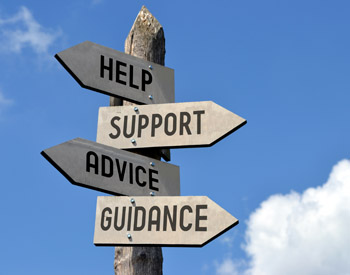Mentoring Tips: How to Find, Keep, and be a Mentor

There was a time, years ago, when it was common to learn a craft or trade by being an apprentice to a master teacher. The transferring of skills was achieved through watching and practicing under the guidance of someone with significant experience in the craft, such as learning how to shoe a horse or become a cabinetmaker. Not only were traditions passed down from generation to generation in this manner, but lifelong relationships were also developed, as the apprentice became a part of a trade. Today, one might view mentors serving a similar role as that of a master teacher.
The Value of Mentorship
Is mentorship really valuable? Yes, it can be – for both the mentor and the mentee. Being mentored enables you to:
- Learn from an experienced practitioner;
- Expand your professional network;
- Learn how things get done in the cultural, historical, and political environment of an institution;
- And moves you along your career path.
Mentoring someone can also be a very rewarding experience. You are exposed to new and different ideas, plus you acquire the opportunity to reflect on your own current practices through the eyes of another up-and-coming professional.
Formal and Informal Mentoring
The process of mentoring can be either formal or informal. Universities, colleges, and other institutions may offer formal mentoring programs to new faculty, staff, and administrators. Here, seasoned individuals serve as mentors to those new to the institution following a formal, proscribed pre-planned program of activities and events. Informal mentoring is another option and can be as effective, if not more effective, than participating in a more formal program.
If there is no formal mentoring program available for you to participate in, how do you find a mentor? One way to find a mentor is to observe individuals around you that you admire. Maybe there is someone that always seems to get things done, even in the most difficult of circumstances. It could be someone that others respect, understanding the ins-and-outs of strategic funding, or supports those they lead. Or, it could be an individual that possess knowledge and experience in a particular area (e.g., budgeting, professional development, etc.) that you want to learn more about.
Finding a Mentor
Once you have identified someone who could mentor you, it might be a good idea to invite them to lunch or coffee, and have a conversation about your career interests. If you find that you get along with this person on a professional level, then ask if they would be willing to show you how to do something, such as manage a complex budget or deal with difficult colleagues. Then let the mentoring naturally develop from there.
Good Mentoring
The key to having a good mentoring experience is for both individuals to agree on clear expectations regarding the experience. This starts with making sure that the mentor and mentee is a good match. According to Haddock-Millar and Sanyal (2015), effective mentors possess common characteristics. Good mentors:
- are experts in their field of study;
- are committed to their own professional development as well as that of others;
- have the ability to develop meaningful relationships;
- and have significant internal and external networks.
In comparison, a good mentee is open to learning, but is also not shy about communicating with their mentor if the experience is not meeting expectations or if they feel overpowered in the relationship.
Avoid Mentoring Pitfalls
Todaro (2015) shares some pitfalls to be aware of regarding mentoring:
- Avoid mentors who are not happy with their work, who appear to know-it-all, and who use others to get ahead;
- Avoid breaching any type of confidentiality or talking about personal issues, including asking for advice and counseling;
- As a mentee, take the mentoring opportunity seriously;
- And do not allow the mentor/mentee relationship to develop into an intimate one.
Checking in frequently with your mentor helps to make sure that the experience is truly working in your best career interests.
Is Mentoring Right for You?
Before seeking or engaging in a mentoring experience, ask yourself if a formal or informal mentoring program is right for you at this point in your career? Think about what you would like to gain at the end of the mentoring experience. Know that it is ok to end a mentorship, that sometimes a mentoring relationship will fizzle out on its own, or it will continue on for a lifetime.
You may have several mentoring relationships throughout your career – some may be formal, some informal; in some you may be the mentor, in the others the mentee. The best mentoring experiences occur when both individuals share common interests, engaging in the process of learning from each other.
Gail M. Staines, Ph.D., is dean of library services at the University of Central Missouri (UCM) where she also oversees the Center for Teaching and Learning. Previously, Gail held administrative positions at Washington University in St. Louis and Saint Louis University. She was also an executive director of a nonprofit organization for eight years. In these positions, Gail has and continues to provide advice to the next generation of higher education professionals. She holds an MLS and a Ph.D. in higher education administration from the University at Buffalo. Over her career, Staines has served as a faculty member teaching both undergraduate and graduate level courses online and on-the ground. An author of several books and articles, she is frequently asked to be a keynote speaker at conferences, and has been inducted into several honor societies. A lifelong equestrienne, Gail teaches riding and has developed and will be teaching an introductory equine course at UCM.
Thinking about your next career move?
Check out our latest job postings or create a free account to save job searches, upload your resume, and get daily job alerts.
